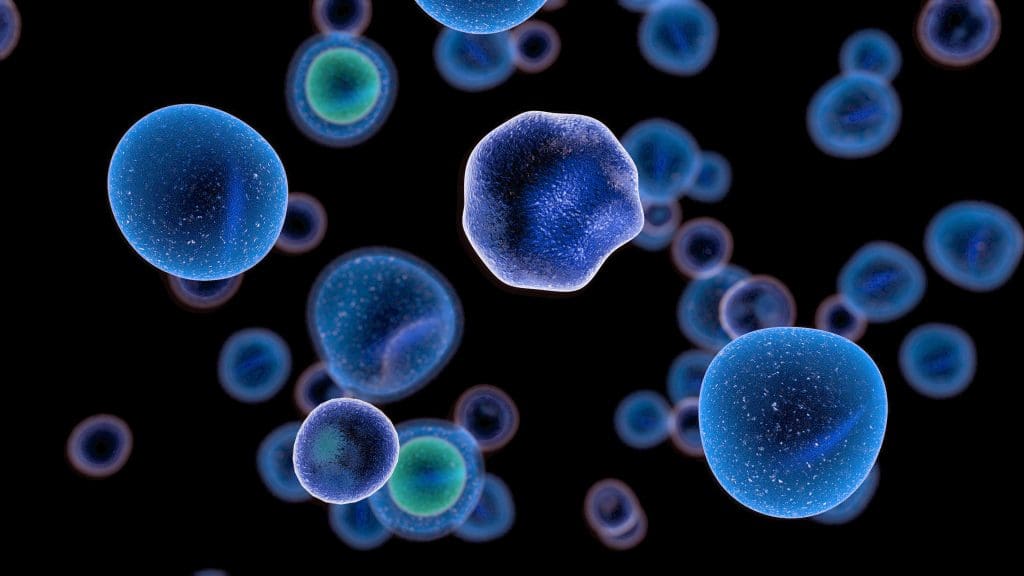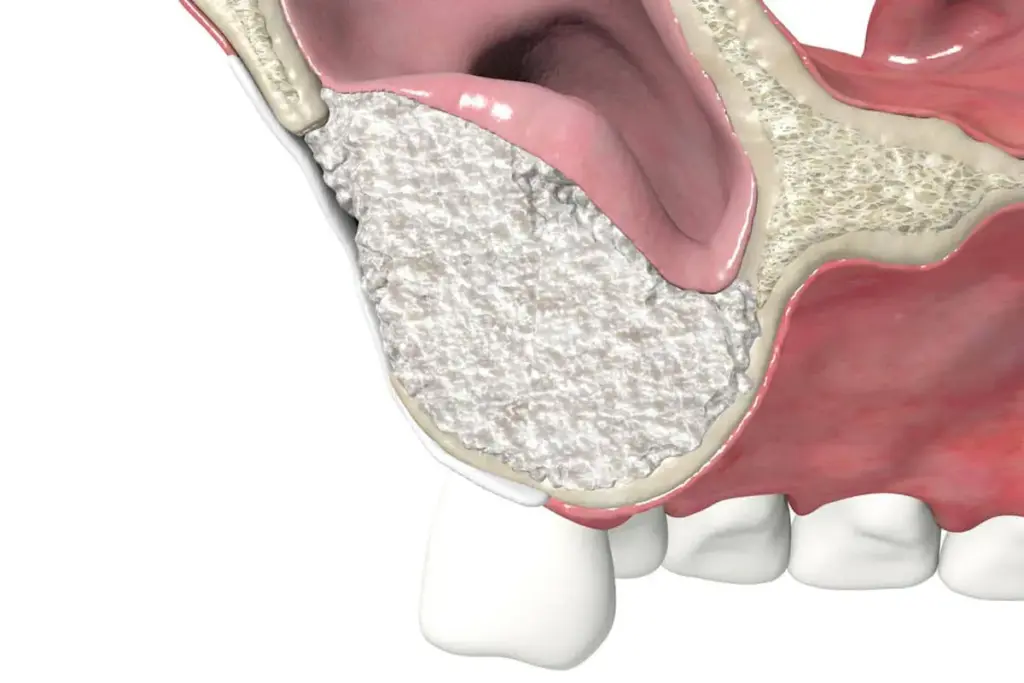Stem cells are often linked to human biology, but plants also have them. These cells are key to plant growth and development. Studies have found stem cells in many fruits and other edible plants. This discovery has sparked interest in their potential benefits.
The idea that some foods have stem cells is getting attention. Research suggests these cells might have special properties. As we dive into the world of stem cell food, we see there’s more to it than we thought.
Key Takeaways
- The concept of stem cells is not limited to human biology; plants also have stem cells.
- Recent studies have identified stem cells in various fruits and edible plants.
- The presence of stem cells in certain foods is sparking interest in their potential benefits.
- Stem cell food is a growing area of research, with implications for human health.
- Further exploration is needed to fully understand the properties and benefits of stem cells in food.
The Science of Stem Cells and Their Role in Living Organisms

Stem cells are key in growth and repair of living things. They can turn into different cell types. This makes them essential for keeping cells healthy.
What Are Stem Cells and Why Are They Important?
Stem cells can grow and change into many cell types. They help fix damaged cells and keep the body balanced. Their role is vital in growth, repair, and health.
Different Types of Stem Cells in Nature
There are many stem cells in nature, like embryonic and adult stem cells. Plants also have stem cells in their growing parts. Knowing about these can help us use them in cell regeneration foods and stem cell nutrition.
Studies show some foods, like citrus fruits, have compounds that help stem cells. Eating foods that support stem cells can keep us healthy.
Plant Stem Cells vs. Animal Stem Cells: Understanding the Differences
Plant and animal stem cells play key roles in growth and development. They have different characteristics and functions. This makes them essential for life.
Meristematic Tissues: The Plant Equivalent of Stem Cells
In plants, stem cells are in meristematic tissues. These tissues help plants grow and develop new parts. They contain cells that can become different types, like leaf or stem cells.
These tissues are found where plants grow, like the tips of roots and shoots. The cells in these areas can regenerate and change into various cell types. This lets plants adjust to their surroundings.
How Plant Cells Regenerate and Differentiate
Plant cells can regenerate and change into different types. This is key for plant growth. It’s thanks to meristematic tissues and the stem cells they hold.
- Plant stem cells can turn into different cell types, like leaf or root cells.
- The process of cell regeneration and differentiation in plants is influenced by environmental factors, such as light and nutrient availability.
- Understanding how plant cells regenerate and differentiate can provide insights into plant development and potentially improve crop yields.
By learning about the differences between plant and animal stem cells, we can appreciate their unique roles. They are vital for the health and growth of living things.
Do Fruits Actually Contain Stem Cells?
Stem cells are not just for humans and animals; they’re also in fruits. Fruits like apples and berries are stem cell rich foods. They have been studied for their health benefits.
The Truth About Fruit Stem Cells
Fruit stem cells are in the meristematic tissues of plants. These tissues help fruits grow and develop. Stem cells in fruits are key for their growth and change into different cell types.
Where Growth Cells Are Located in Fruits
In fruits, stem cells are mainly in active growth areas. This includes the tips of roots and shoots, and in vascular tissues. These cells are important for fruit development and ripening.
The Science Behind Fruit Development
Fruit development is complex, involving many cell types, including stem cells. Learning how these cells help fruits grow can reveal the health benefits of eating foods with stem cells.
Studies on fruit stem cells show they could support human health. They might help in regenerative medicine and nutrition. As we learn more about fruit stem cells, we might find new ways to use them for our health.
Foods With Stem Cells: A Comprehensive Guide
Plant stem cells are found in many fruits and vegetables. They are important for plant growth and health. Eating foods with these cells may help improve your overall health.
Which Foods Contain Plant Stem Cells
Fruits like apples, berries, and citrus fruits are full of plant stem cells. Vegetables such as garlic and onions also have these cells. These cells help plants grow and heal.
How These Foods Differ From Conventional Options
Foods with plant stem cells are different from regular foods. They have more antioxidants and nutrients that help cells stay healthy. For example, some apples used in supplements are packed with stem cells.
Choosing foods with stem cells that are also nutrient-rich is key. Organic produce often has more good stuff than non-organic. This is because it’s grown without harmful chemicals.
Eating a variety of stem cell-rich foods can be very beneficial. They help with cell growth and improve nutrition. These foods are a great way to boost your health.
Apples: The Most Studied Fruit for Stem Cell Properties
Apples are a key fruit in studying stem cell properties. A lot of research has been done on them. This research has shown how apples can help with cellular regeneration and overall health.
Swiss Apple Stem Cell Research
In Switzerland, scientists have been studying Malus domestica, a type of apple. They found that apple stem cells can support cellular health. This is thanks to their unique properties.
“The study of apple stem cells has shown how plant stem cells can benefit human health,” says a leading researcher.
Polyphenols and Other Beneficial Compounds
Apples are full of polyphenols, which are antioxidants. These compounds help protect cells. They work well with apple stem cells to boost their benefits.
- Polyphenols act as antioxidants, protecting cells from damage.
- Other beneficial compounds in apples include flavonoids and quercetin.
- These compounds add to the nutritional value of apples.
How Apple Compounds Support Cellular Health
Apples have stem cells and polyphenols, making them special for cellular health. Research shows these compounds protect stem cells from oxidative stress. This helps their function and supports cellular regeneration.
Eating apples can help you get these health benefits. It’s a way to support your cellular health.
Berries and Their Remarkable Regenerative Properties
Berries are packed with nutrients and have amazing regenerative powers. Blueberries, strawberries, and blackberries are full of compounds that help cells grow and repair.
Blueberries, Strawberries, and Blackberries
These berries are loaded with anthocyanins, powerful antioxidants. Anthocyanins give these fruits their bright colors and support cell health. They are linked to many health benefits, including helping stem cells.
Anthocyanins and Their Effect on Cellular Function
Anthocyanins protect cells from damage, help them regenerate, and may activate stem cells. This makes berries a great choice for anyone looking to boost their health and cell regeneration.
Research on Berry Compounds and Stem Cell Activation
Studies are looking into how berry compounds can activate stem cells. Anthocyanins and other compounds in berries may help stem cells work better. This could lead to better health and regenerative abilities.
In short, eating berries can help support cell health and regeneration. With their anthocyanins and other nutrients, berries are a natural way to improve overall well-being.
Citrus Fruits: Vitamin C and Bioflavonoids for Stem Cell Support
Citrus fruits are packed with vitamin C and bioflavonoids. They help support stem cell health and regeneration. These fruits are common in many diets and offer many health benefits.
Oranges, Lemons, and Grapefruits
Oranges, lemons, and grapefruits are popular citrus fruits. Each has its own mix of vitamins, minerals, and bioactive compounds. Oranges are famous for their vitamin C. Lemons and grapefruits have bioflavonoids that fight inflammation.
How Citrus Compounds Influence Cellular Regeneration
Naringenin in grapefruits is studied for its role in cell regeneration. It helps reduce oxidative stress and inflammation. This makes it easier for stem cells to work well.
Vitamin C in citrus fruits is key for collagen and iron absorption. These are vital for healthy tissues and stem cell function.
Optimal Consumption for Maximum Benefits
Eating citrus fruits fresh and whole is best for stem cell support. This way, you get all the nutrients and bioflavonoids. Eating different citrus fruits adds more benefits.
Adding citrus fruits to a balanced diet helps overall health. It also supports stem cell function.
Exotic Fruits With Potent Stem Cell-Supporting Properties
Exploring exotic fruits reveals a treasure trove of nutritional benefits. These fruits, often rich in unique compounds, have garnered attention for their health benefits. They may support stem cell function.
Dragon Fruit, Mangosteen, and Acai
Dragon fruit, mangosteen, and acai are examples of exotic fruits. They have been studied for their nutritional and stem cell-supporting properties. Dragon fruit has vibrant pink or yellow skin and is rich in vitamins and minerals.
Mangosteen, known as the “purple mangosteen,” contains xanthones. These have been researched for their antioxidant properties. Acai berries, with their deep purple color, are rich in anthocyanins. These compounds have been linked to various health benefits.
Unique Compounds Found in Tropical Fruits
Tropical fruits are known for their diverse array of bioactive compounds. Dragon fruit contains flavonoids and vitamin C, which contribute to its antioxidant properties. Mangosteen’s soft interior is a good source of fiber and contains xanthones.
Acai berries are rich in anthocyanins. These are powerful antioxidants that may help protect cells from damage.
Traditional Uses and Modern Scientific Validation
Many exotic fruits have been used in traditional medicine for centuries. Modern science is validating some of these traditional uses. This provides insights into how these fruits may support health.
For example, research on mangosteen has highlighted its anti-inflammatory properties. Studies on acai berries have explored their antioxidant capacity and cardiovascular benefits.
The Connection Between Fruit Consumption and Human Stem Cell Function
Fruits contain compounds that help human stem cells work better. Studies show eating fruits can boost stem cell health.
How Plant Compounds Influence Our Stem Cells
Fruits are full of bioactive compounds. These can keep stem cells healthy and active. Stem cells are key for fixing and growing tissues.
Key Mechanisms:
- Antioxidant activity to protect stem cells from oxidative stress
- Modulation of signaling pathways to support stem cell function
- Enhancement of stem cell proliferation and differentiation
The Role of Antioxidants in Protecting Stem Cells
Antioxidants are essential for shielding stem cells from harm. Fruits are packed with antioxidants like vitamins C and E, and polyphenols.
Eating different fruits gives stem cells the protection they need. This can improve overall health and lower disease risk.
How to Increase Stem Cells Naturally Through Dietary Choices
Diet is key to keeping stem cells healthy. Eating a mix of fruits, veggies, and whole foods gives stem cells what they need. This helps them grow and work better.
Creating a Stem Cell-Boosting Meal Plan
To naturally boost stem cells, plan your meals carefully. Eat a variety of colorful fruits and veggies. They’re packed with vitamins, minerals, and antioxidants that help stem cells thrive. Adding foods rich in antioxidants, like berries and leafy greens, protects stem cells from harm.
Key Nutrients That Support Stem Cell Production
Some nutrients are super good for stem cells. Vitamin C in citrus fruits and strawberries is one. Omega-3 fatty acids in fish and nuts are another. Don’t forget zinc, magnesium, and polyphenols in fruits, veggies, and grains.
Frequency and Timing of Consumption
When and how often you eat matters for stem cell health. Eating a balanced diet every day is better than eating a lot of specific foods now and then. Adding stem cell-supporting foods to your daily meals keeps stem cells working well.
By choosing the right foods and nutrients, you can naturally help your stem cells. This might even increase their number.
Beyond Fruits: Other Foods That Support Stem Cell Health
There’s more to stem cell health than just fruits. A wide range of foods can help keep stem cells healthy. Eating a variety of whole foods is key to supporting stem cell health.
Vegetables With Stem Cell-Activating Properties
Vegetables are vital for a diet that supports stem cells. Leafy greens like spinach and kale are packed with antioxidants. They protect stem cells from harm.
Broccoli and other cruciferous veggies have sulforaphane, which boosts cellular health. Carrots and sweet potatoes, full of beta-carotene, also aid in a healthy stem cell environment.
“A diet rich in colorful vegetables can provide the necessary nutrients for optimal stem cell function.”
Herbs, Spices, and Their Impact on Cellular Health
Some herbs and spices are great for stem cell health. Turmeric has curcumin, which fights inflammation. Ginger is full of antioxidants. Rosemary helps protect stem cells from damage.
- Turmeric: Anti-inflammatory properties
- Ginger: Antioxidant effects
- Rosemary: Protects against oxidative stress
Healthy Fats and Proteins for Stem Cell Support
Healthy fats and proteins are also important for stem cells. Foods like salmon and walnuts are full of omega-3s. They keep cells strong. Lean proteins like chicken and turkey help stem cells grow and change.
Eating these foods can give your stem cells what they need to work well. A balanced diet with lots of whole foods supports stem cell health and overall well-being.
The Scientific Evidence: Research on Food and Stem Cell Function
Research is showing a strong link between what we eat and our stem cells. Scientists are looking into how food choices affect stem cell health. They’ve found some exciting results in different areas.
Current Studies on Dietary Influence on Stem Cells
Studies are looking at how certain foods and nutrients impact stem cells. For example, research on polyphenol-rich foods like berries and green tea is promising. A study in the Journal of Agricultural and Food Chemistry found that some polyphenols can boost stem cell activity.
The role of omega-3 fatty acids in stem cell health is also being studied. These fats, found in fish and nuts, might help keep stem cells healthy.
Understanding the Limitations of Food-Based Approaches
While the research is encouraging, we must remember the limits of food alone. Nutrient absorption, how our bodies process food, and the complexity of stem cell regulation can impact results. These factors make it hard to rely only on diet for stem cell health.
“The relationship between diet and stem cell health is complex and multifaceted. While certain foods show promise, a complete understanding requires more research.”
Promising Areas of Future Research
Future studies will likely look at how different foods and nutrients work together. They might also explore the effects of diets like the Mediterranean on stem cell health. This could give us important insights.
- Examining the role of gut microbiota in mediating the effects of diet on stem cells
- Investigating the impact of personalized nutrition on stem cell function
- Elucidating how specific dietary compounds affect stem cell fate
As we learn more about diet and stem cell function, we might find new ways to support our cells through food.
Practical Ways to Incorporate Stem Cell-Supporting Foods Into Your Diet
Boosting your stem cell health through food is easier than you think. Adding the right foods to your meals helps your body regenerate naturally.
Daily Meal Ideas Rich in Cellular Regeneration Foods
Begin your day with a breakfast full of nutrients. Try oatmeal with blueberries and walnuts. This mix offers antioxidants and healthy fats.
For lunch, a salad with citrus fruits like oranges or grapefruits is great. Add mixed greens and top with walnuts or almonds. Citrus fruits boost cellular health, and nuts add essential fatty acids.
Smoothies and Juices for Maximum Nutrient Absorption
Smoothies and juices pack a lot of stem cell-supporting nutrients. A berry smoothie with blueberries, strawberries, and blackberries, blended with almond milk, is tasty and healthy.
Juices made with citrus fruits and leafy greens improve nutrient absorption. They support cellular function well.
“The right nutrition can significantly impact our stem cell health, and incorporating foods rich in antioxidants and other beneficial compounds is a great place to start.”
Cooking Methods That Preserve Beneficial Compounds
Cooking methods affect food’s nutritional value. Steaming vegetables keeps more nutrients than boiling. Cooking with gentle heat also preserves food’s good compounds.
Use herbs and spices for flavor and health benefits. For example, turmeric has curcumin, which fights inflammation.
Making smart food choices and cooking methods supports your stem cell health and overall well-being.
Common Myths and Misconceptions About Fruit Stem Cells
Fruit stem cells have sparked both interest and confusion. This has led to both real benefits and exaggerated claims. As people focus more on health, the demand for fruit stem cell products has grown. This has brought a flood of marketing that often mixes fact and fiction.
Separating Marketing Claims From Scientific Facts
Many products say they have “stem cell-activating” properties. But, it’s key to check these claims. Not all marketing claims are supported by science. For example, some say their fruit stem cell extracts can “regenerate” human cells. But, this is often too good to be true.
In truth, fruit stem cells offer more subtle benefits. Their impact on human health is something scientists are studying.
Understanding the Realistic Benefits of Plant Stem Cells
While “stem cell regeneration” might be overstated, plant stem cells do contain valuable compounds. These compounds, like antioxidants and polyphenols, can protect cells and boost health. But, eating fruits or products with stem cells won’t directly “regenerate” human stem cells.
Questions to Ask When Evaluating Stem Cell Food Claims
When looking at products or diets that claim to support stem cell health, ask important questions. “What specific compounds are being claimed to support stem cell health?” “Is there scientific evidence to back these claims?” “Are the claims supported by reputable health organizations or peer-reviewed studies?” Being informed and cautious helps make better choices.
Knowing the myths and misconceptions about fruit stem cells helps make better health choices. It’s important to approach these products with a critical and nuanced view.
Conclusion: Harnessing Nature’s Potentia for Cellular Health
Eating foods that support stem cells is a great way to use nature’s power for health. Fruits like apples, berries, and citrus fruits give our bodies the nutrients they need. This helps our stem cells work better.
Plant-based foods are key to helping our cells grow back and keeping us healthy. As scientists learn more, it’s clear that nature has many health benefits for us.
Choosing the right foods is a smart way to help our cells and unlock our stem cells’ full power. This natural way to stay healthy can greatly improve our lives.
FAQ
What is the role of vitamin C in supporting stem cell health?
Vitamin C, found in citrus fruits, is vital. It helps with collagen, reduces stress, and boosts the immune system.
How do antioxidants in foods support stem cell health?
Antioxidants protect stem cells from damage. They help stem cells work better and stay healthy.
Can I get all the necessary nutrients for stem cell health from food alone?
A balanced diet with whole foods is key. But, everyone’s needs are different. Supplements can help, but talk to a doctor first.
Are there any potentially harmful effects of consuming stem cell-supporting foods?
Eating these foods is usually safe. But, be aware of allergies or drug interactions. Always talk to a doctor before changing your diet.
How can I incorporate stem cell-supporting foods into my diet?
Eat a variety of fruits, vegetables, whole grains, and lean proteins. Try fruit salads, smoothies, and juices. Cooking methods that keep nutrients are also important.
What are some of the best foods for supporting stem cell health?
Foods high in antioxidants and vitamins are good for stem cells. Examples include apples, berries, and citrus fruits. Exotic fruits like dragon fruit and mangosteen are also beneficial.
Can consuming foods with stem cells increase my stem cell count?
Eating foods with stem cells might help stem cell health. But, how it affects our stem cell count is not fully understood yet.
How do plant stem cells differ from animal stem cells?
Plant stem cells help plants grow. Animal stem cells are important for animal development and repair. They are different in function and characteristics.
Do fruits actually contain stem cells?
Yes, fruits have plant stem cells. These cells help fruits grow and develop. They are found in the tips of roots and shoots.
What are stem cells and how do they relate to food?
Stem cells can turn into different cell types. They help with growth, repair, and regeneration. Foods, like fruits, have plant stem cells that are good for us.










